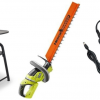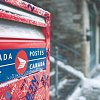As the pandemic grinds on, people find themselves in one of two money camps.
Those that kept their jobs and hunkered down are actually in good financial shape and may have even paid down more debt than they might have otherwise.
Then there are those who lost their jobs, deferred everything they could, used lines of credit and credit cards to keep afloat and now find themselves in a debt mess.

"So many people are in trouble like they've never been before," says Katrina Smysnuik, an advisor with the Kelowna branch of the Credit counselling Society.
"We're already seeing worst case scenarios where people deferred mortgage, car loan and line of credit payments, have exhausted CERB (Canada Emergency Response Benefit) and employment insurance and are now living on lines of credit and credit cards that are going to hit their limits."
What can people in such a crisis do?
"Talk with your bank or credit union or come to us," said Smysnuik.
"Credit Counselling Society is a non-profit organization where appointments are always free and we can help people set budgets, consolidate and restructure their debt and pay it off."
Often, one of the best ways to move forward, if you own your own home, is to access home equity and use the money to pay off higher interest debt and consolidate everything into your lower-interest-rate mortgage.
If you don't own your own home, it's trickier.
You'll have to go on a strict budget, try to restructure your higher interest debt into a lower interest line of credit, maybe go from a two-car family to one car and-or get a second job.
Budgeting and restructuring are first steps and bankruptcy should only be a last resort because it impacts your credit rating for years afterward and makes it difficult to secure a mortgage, loan, line of credit or credit card.
Charlie Peet, a debt relief specialist with 4 Pillars Consulting Group in Kelowna, clarifies that there is good debt and bad debt.
Good debt includes a mortgage because it provides you with a place to live that is appreciating and is a major asset and student loans because it's an investment in your education and future earning power.
Bad debt covers everything else from your car loan and your line of credit to all those high-interest credit cards.

"I think the pandemic put people into a false sense of security in some ways," said Peet.
"Since the pandemic began, bankruptcies have been down 30-50%. That's because people have deferred payments, taken government money and Revenue Canada isn't being aggressive with collections right now."
So, that would indicate the day of reckoning is coming and the tsunami of debt is on the horizon.
"Actually, I don't think it will be as massive a crash as it was after the 2009 financial crisis," said Peet, who has 20 years experience in the debt relief industry.
"Many people will be able to dig themselves out of trouble by accessing home equity, budgeting or maybe getting a second job."
Canadians tended to be debt-riddled before the pandemic, so COVID has only intensified the situation for some.
A recent survey by Credit Counselling Society reveals a mixed bag of financial feelings amongst Canadians.
While 64% are carrying non-mortgage debt, only 31% are having difficulty making the minimum payments on their debt and only 27% are anxious about their current financial situation.
However, 53% are cutting back on non-essential spending, 51% feel they don't need financial help and 44% have an emergency fund that will last only one month or less.
















